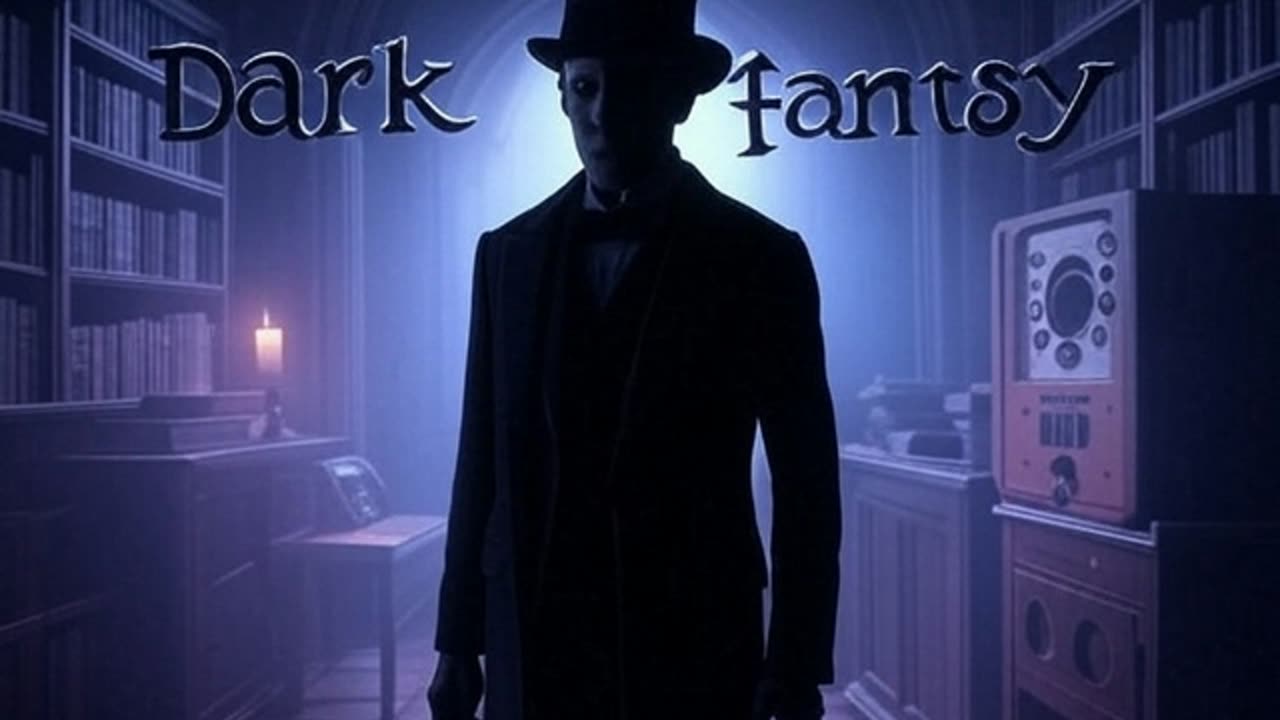Premium Only Content

Dark Fantasy February 20, 1942 - A Delicate Case of Murder
"A Delicate Case of Murder," episode 14 of the radio series Dark Fantasy, aired on February 20, 1942, over the NBC Red Network. This supernatural thriller centers on a chilling tale of murder laced with eerie, otherworldly elements. The story follows a seemingly perfect crime—a murder meticulously planned to leave no trace—only to unravel through supernatural intervention. A restless spirit or uncanny force begins to haunt the perpetrator, revealing clues that defy rational explanation. As the killer’s guilt manifests in terrifying ways, the episode builds to a suspenseful climax where justice is delivered through paranormal means. Written by Scott Bishop, the episode exemplifies Dark Fantasy’s blend of horror, mystery, and the macabre, with a focus on psychological tension and moral retribution.
Cast and Crew
Cast:
Ben Morris as the lead (likely the protagonist or narrator, typical for Bishop’s scripts)
Supporting actors: Likely included regulars like Eleanor Naylor Corin, Fred Wayne, or Muir Hite (common Dark Fantasy performers, though specific roles for this episode are not documented)
Announcer: Not explicitly credited, but often handled by station staff or a series regular
Crew:
Writer: Scott Bishop (creator and primary writer for Dark Fantasy)
Director: Likely Scott Bishop or an NBC staff director
Producer: NBC Red Network, possibly overseen by George Zachery
Music: NBC house orchestra, possibly arranged by Cyril Armbrister
Sound Effects: NBC sound effects team, standard for 1940s radio drama
Note: Exact cast and crew details for this episode are not fully documented in available sources. The above is based on Dark Fantasy’s standard production team and recurring actors during the 1941-1942 season.
News in the United States (Week of February 20, 1942)
World War II Home Front: The U.S. was mobilizing after Pearl Harbor (December 1941). Rationing began, with sugar and gasoline restrictions announced. The War Production Board prioritized military manufacturing, halting civilian car production.
Military Developments: The U.S. Army Air Forces planned increased bombings of Japanese-held territories. Recruitment surged, with draft boards reporting high enlistments, especially after President Roosevelt’s call for a 7-million-man army.
Japanese American Internment: Executive Order 9066, signed on February 19, 1942, authorized the relocation of Japanese Americans from the West Coast. Initial evacuations began, sparking debates over civil liberties.
Economic Shifts: The Office of Price Administration set price ceilings to curb inflation. War bonds were heavily promoted, with campaigns urging citizens to “buy a share in America.”
Cultural Note: The film Kings Row, starring Ann Sheridan and Ronald Reagan, was a box-office hit, reflecting wartime escapism through melodrama.
News in the World (Week of February 20, 1942)
Pacific Theater: Japan’s invasion of Southeast Asia continued. Singapore fell to Japanese forces on February 15, 1942, a major Allied defeat. The Battle of Java Sea loomed, with Japan targeting Dutch East Indies oil fields.
European Theater: Nazi Germany intensified U-boat attacks in the Atlantic, sinking Allied merchant ships. The Luftwaffe conducted air raids on British cities, though the Blitz was waning.
Soviet Front: The Red Army pushed back against German forces in the Battle of Moscow, marking a turning point. Harsh winter conditions aided Soviet counteroffensives.
Allied Strategy: Churchill and Roosevelt coordinated via the Arcadia Conference’s aftermath, planning the “Europe First” strategy. Discussions began for a second front to relieve Soviet pressure.
Holocaust: The Wannsee Conference (January 1942) had formalized the “Final Solution.” Deportations of Jews to concentration camps like Auschwitz escalated, though details were not yet widely known.
-
 1:26:12
1:26:12
Steven Crowder
15 hours agoThe Left is Violent (Part 2) | Change My Mind
518K836 -
 1:23:53
1:23:53
Man in America
8 hours agoDollar Collapse is Engineered to Herd Us Into CBDC Prison—David Jensen EXPOSES the Playbook
37.2K10 -
 5:16:01
5:16:01
MattMorseTV
7 hours ago $7.26 earned🔴CHILLING + TALKING🔴
87.1K3 -
 2:04:23
2:04:23
The Charlie Kirk Show
5 hours agoTHOUGHTCRIME Ep. 99 — THOUGHTCRIME IRL
109K38 -
 1:11:34
1:11:34
Flyover Conservatives
12 hours agoSilver Shortage ALERT: London Vaults Running Dry in 4 Months- Dr. Kirk Elliott; 3 Tips to Transform Your Business - Clay Clark | FOC Show
34.2K3 -
 1:10:18
1:10:18
Glenn Greenwald
7 hours agoIsrael Pays Influencers $7,000 Per Post in Desperate Propaganda Push: With Journalist Nick Cleveland-Stout; How to "Drink Your Way Sober" With Author Katie Herzog | SYSTEM UPDATE #525
112K120 -
 38:54
38:54
Donald Trump Jr.
10 hours agoDems' Meme Meltdown, Plus why California Fire Victims should be more Outraged than Ever | TRIGGERED Ep.279
127K95 -
 2:15:18
2:15:18
megimu32
4 hours agoOn The Subject: Meg’s Birthday Bash! 🎂🎶
25.8K14 -
 23:47
23:47
Jasmin Laine
8 hours agoALL HELL BREAKS LOOSE—Eby MELTS DOWN While Poilievre CORNERS Carney
20K19 -
 LIVE
LIVE
SpartakusLIVE
6 hours agoNEW Black Ops 7 BETA || WZ too! And PUBG later?
173 watching
